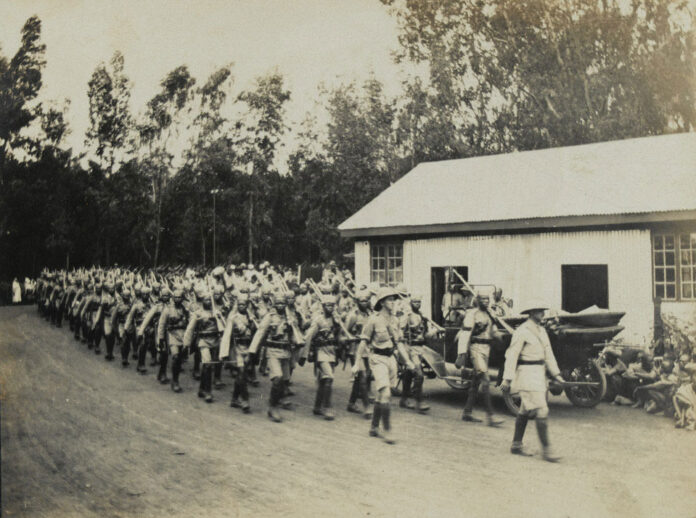When the First World War broke out in 1914, most of Africa was under European colonial rule. Yet the war was not confined to the trenches of France or Belgium—it spread to the African continent, pulling hundreds of thousands of Africans into a conflict that was not their own. Among the most notable forces in this chapter of history was the King’s African Rifles, a regiment whose soldiers fought bravely across East Africa, leaving behind a legacy that is often overlooked in mainstream accounts of the war.
The King’s African Rifles, known as the KAR, was a British colonial regiment formed in 1902. It drew recruits from British East Africa (modern-day Kenya), Uganda, Nyasaland (Malawi), and later from other territories such as Tanganyika (Tanzania). By the time the Great War began, the KAR was a small but disciplined force tasked mainly with enforcing colonial order. That role would soon change dramatically.
World War I reached Africa through the rivalry between Britain and Germany, whose colonies bordered each other. German East Africa, under the brilliant yet elusive commander Paul von Lettow-Vorbeck, became the central battleground for the African campaign. The KAR was thrown into a gruelling war of movement, fighting in dense jungles, mountains, and swamps against an enemy that refused to surrender.
African soldiers in the KAR faced extreme hardships—disease, hunger, harsh weather, and exhausting marches that sometimes lasted weeks. The East African Campaign was unlike the static warfare of Europe; it demanded endurance, adaptability, and intimate knowledge of the terrain. In many cases, African soldiers carried supplies, served as scouts, and fought in direct combat, often under conditions that European troops could not withstand for long.
While the British officers led the regiments, the heart of the fighting force was African. Many soldiers were drawn from rural communities, and their motivation varied—from conscription and colonial coercion to promises of pay, rations, or future benefits. Yet once in service, their discipline and courage earned them respect, even from their adversaries.
The KAR played a decisive role in containing German forces, capturing strategic towns, and keeping supply routes open. The regiment also fought beyond East Africa, serving in the Horn of Africa and other regions where British interests were threatened. By the end of the war, tens of thousands of African soldiers had served in the KAR, and many never returned home—victims of combat, disease, or the brutal conditions of the campaign.
Their contribution, however, was largely forgotten in the decades after the war. For years, African veterans were denied the same recognition and benefits given to their European counterparts. It is only in recent decades that their sacrifices have been acknowledged, with memorials and historical research restoring the role of the King’s African Rifles to the story of World War I.
The African soldiers of the KAR were more than footnotes in a European war—they were men who endured one of the toughest campaigns of the conflict, shaping the outcome in East Africa and proving that courage and resilience are not bound by nationality.

